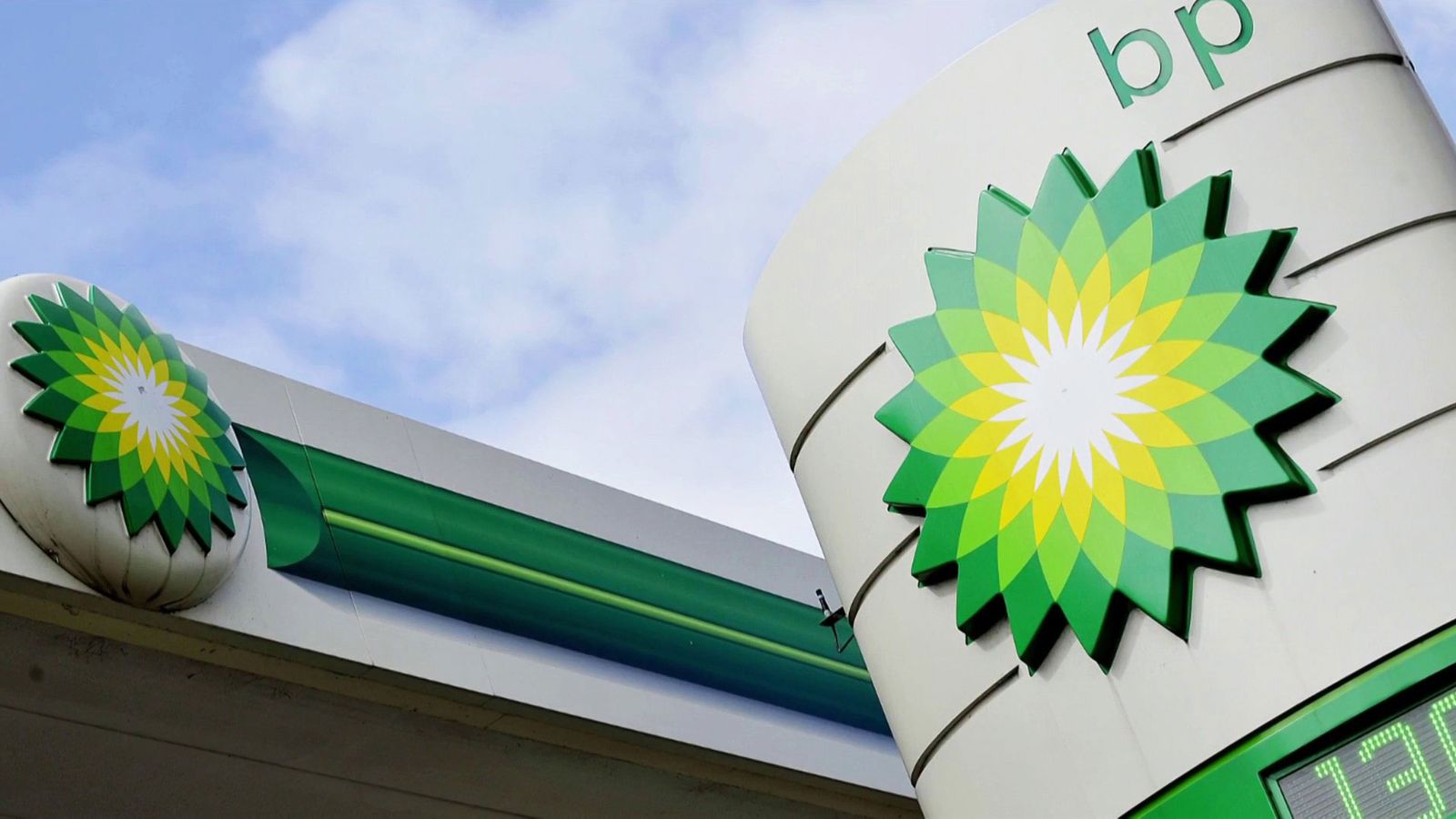BP has recorded a big drop in profits in the first half of its financial year, as energy prices fell from the highs seen after Russia’s invasion of Ukraine.
The oil and gas giant reported net profits of just over $2.5bn (£2bn) for the three months to the end of June.
It’s half the $5bn (£4bn) profit achieved in the preceding three months, the first quarter of 2023.
When compared with profits in the same period last year, the drop is even steeper – $8.45bn (£6.5bn) was recorded at that time.
A fall in profits had been expected by analysts, but BP’s results were worse than expected.
BP said it was down to “significantly lower” refining margins, a “significantly higher level” of maintenance activity and lower oil and gas prices; but an “exceptional gas marketing and trading result, albeit lower than the first quarter”.
Chief executive Bernard Looney said it was a “resilient” performance, “during a period of significant turnaround activity and weaker margins in our refining business”.
Two major oil and gas projects were started, Mr Looney said, and announced growing shareholder payments and a share buyback scheme.
“This reflects confidence in our performance and the outlook for cash flow, as well as continued progress reducing our share count,” he said.
A resilient shareholder payment is BP’s “first priority”, the results said.
The International Energy Agency has said no new fossil fuel project is compatible with the globally accepted goal of limiting warming to 1.5C.
After Russia invaded Ukraine, gas and oil prices reached record highs as countries sought to rapidly reduce reliance on Russian imports.
Oil and gas producers such as BP reaped the financial benefits of these high prices and reported record profits as a result.
A windfall tax was introduced by government in an effort to rein in profits and fund energy support measures for consumers as bills skyrocketed.
